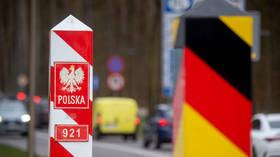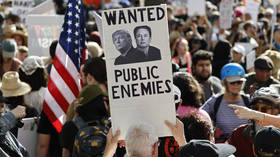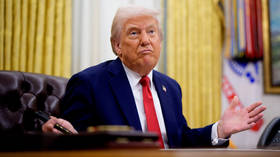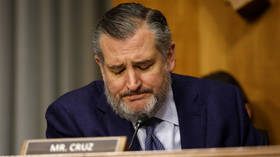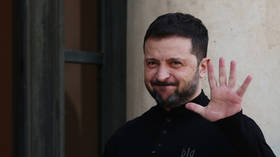Poland blasts EU's ‘imperialistic tendencies’
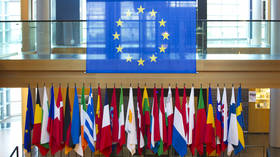
Although Brussels claims to be standing up to the “imperialist” threat posed by Russia, the EU itself is not free of “imperialistic tendencies,” Polish Foreign Minister Zbigniew Rau said in a lengthy opinion piece for the Polish Rzeczpospolita journal published on Monday. Germany is one of the driving forces behind these aspirations, he added.
Some of the more powerful member states of the EU have often attempted to “dominate [their] partners, impose [their] arguments on them, disregard their rights, interests and needs,” while paying “no attention to their protests,” Rau stated, calling for reforms to strengthen the role of smaller states in the decision-making processes.
The increased role of the majority vote in the EU decision-making process advocated by Berlin poses a particular threat to freedom and equality within the bloc, Rau believes. “Small and medium-sized states, who are disproportionately less capable of building effective coalitions” are “doomed to lose” the vote even when their own essential interests or needs are affected, the minister said, adding that their fate is then “decided by others, which means that their freedom is fundamentally violated.”
Larger EU nations like Germany possess “an unquestionable economic advantage and demographic potential,” which also translates into “a voting power in the EU’s decision-making process, which small and medium-sized states are unable to counterbalance even by acting together,” according to Rau. He also claimed that Berlin uses this advantage to pursue its national interests at the expense of others.
The foreign minister accused Germany of striking the Nord Stream gas pipeline deal with Russia to secure a “competitive advantage in the common market” and forcing the entire bloc into dependence on Russian energy. This has led to the current energy crisis, which the EU is now trying to resolve by calling on all member states to reduce gas consumption by 15%.
“Gaining a dominant market position came at the expense of not only undermining the level playing field but also of European economies becoming dependent on Russian supplies of energy sources and the security interests of some EU member states and Ukraine,” Rau claimed.
“The end of Germany’s competitive advantage in the common market has resulted in a proposal – insisted on by Germany – that all member states voluntarily cut their gas consumption by 15%, including those countries that have persistently warned their European partners against becoming dependent on Russia,” he added.
The minister demanded that Berlin curb both its economic and political ambitions. “If the German offer is to defend the EU from imperialism, which Germany feels responsible to do, the Union does not need German leadership but German self-limitation.”
Poland had previously bought gas from Russia, but this spring, it refused to pay for deliveries in rubles under a new arrangement put forth by Moscow in light of EU restrictions. Rather than agreeing to the scheme, Warsaw started buying Russian gas from other EU member states, according to Bloomberg.

